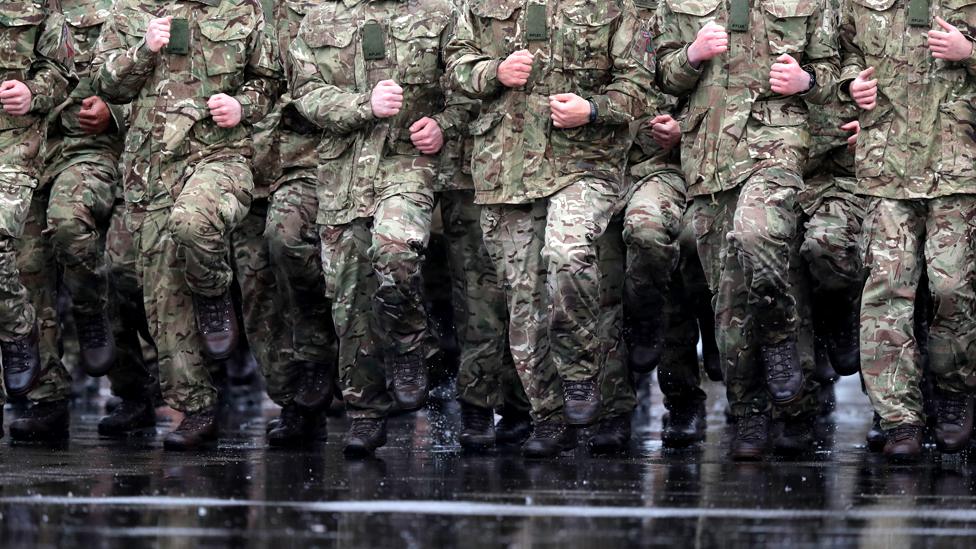Racism 'prevalent' in the armed forces, ombudsman warns
- Published
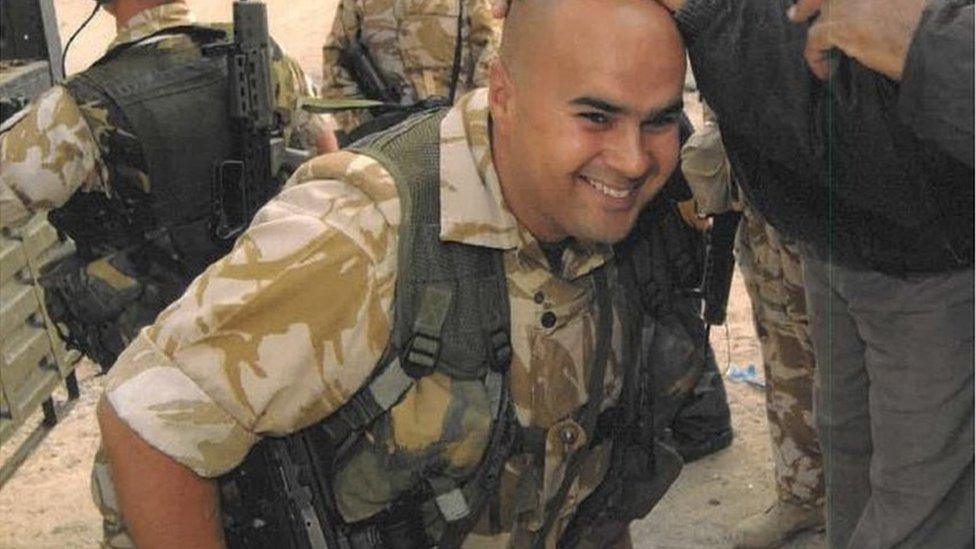
Mark De Kretser said he faced 'relentless' racism during his time serving in the armed forces
"Racism is prevalent" within the armed forces, the independent ombudsman overseeing complaints has warned.
In an exclusive interview with the BBC, Nicola Williams, the first person to hold the office of Service Complaints Ombudsman, said "incidents of racism are occurring with increasing and depressing frequency".
She urged the Ministry of Defence (MoD) to do more to root it out.
The MoD has insisted it has a range of measures in place to tackle racism.
Cases of bullying, harassment and discrimination account for 25% of all the complaints the armed forces receive, and Ms Williams says a "disproportionate" number of those come from ethnic minorities who make up just 7% of service personnel.
The BBC has interviewed one former soldier whose complaint of racism was at first dismissed by the Ministry of Defence, but then upheld by the Ombudsman.
Mark De Kretser, whose father came from Sri Lanka, served as a regular soldier and then as a reserve for nearly 30 years.
He did tours of both Iraq and Afghanistan. But it wasn't combat which left him with Post Traumatic Stress Disorder, it was racism.
Former soldier Mark de Kretser: "People called me Apu from The Simpsons"
He describes it as "relentless". He says he was asked whether someone in his family ran a corner shop.
"I'd be referred to as Apu, out of the Simpsons, I'd be referred to as Gary Coleman, Buddha… and there's a common theme to all of them.
"It got to the point where I wasn't worried about how I performed at work. I was worried about what was going to be said to me next".
Mark had a breakdown and was medically discharged from the Army in 2017. He sued the MoD and has now received a financial settlement.
His solicitor, Ahmed Al-Nahhas, the head of military claims at Bolt Burdon Kemp, says he sees many more servicemen and women who ask about their legal rights, but who don't make a formal complaint "because they're afraid for their careers or they don't have faith in the system".
His point was reinforced in a report by MPs earlier this year which expressed "concern" that pressure had been put on some complainants not to proceed.
That lack of trust in the system was highlighted earlier this year when two former paratroopers took their complaint of racism to an employment tribunal instead.
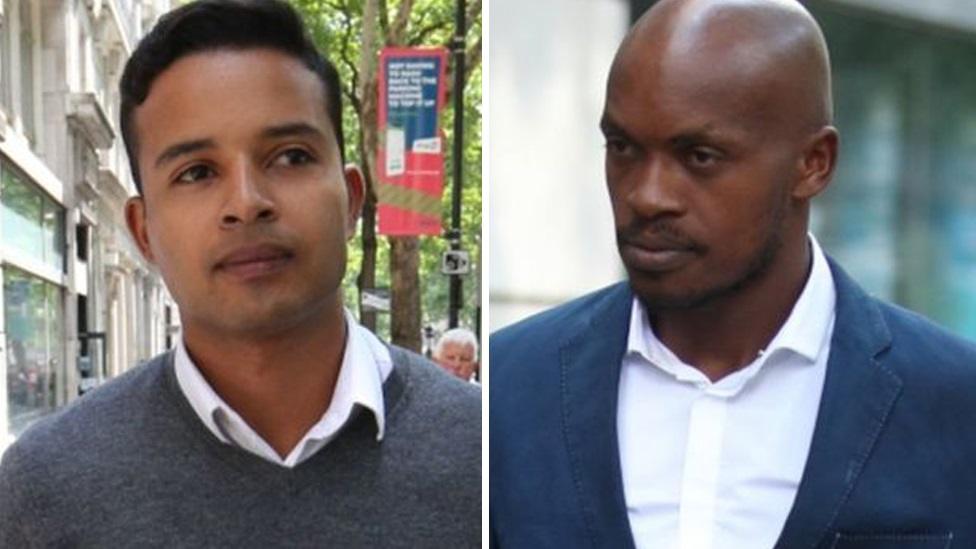
Hani Gue (L) and Nkululeko Zulu claimed they were subjected to racial harassment
The court found that Hani Gue and Nkululeko Zulu has been working in a "degrading, humiliating and offensive environment" at their Colchester barracks with racist graffiti written across personal photos.
Mr Nkululeko said he believed the army suffered from "systemic racism".
Nicola Williams says she "would not go as far" as to describe the army as "institutionally racist".
But she adds "I would absolutely say the Army and the armed forces have issues with racism which need to be tackled".
Despite improvements she says the complaints system is still not operating efficiently and fairly. Her office is still short staffed.
She's still waiting for the MoD to follow up on a number of her recommendations.
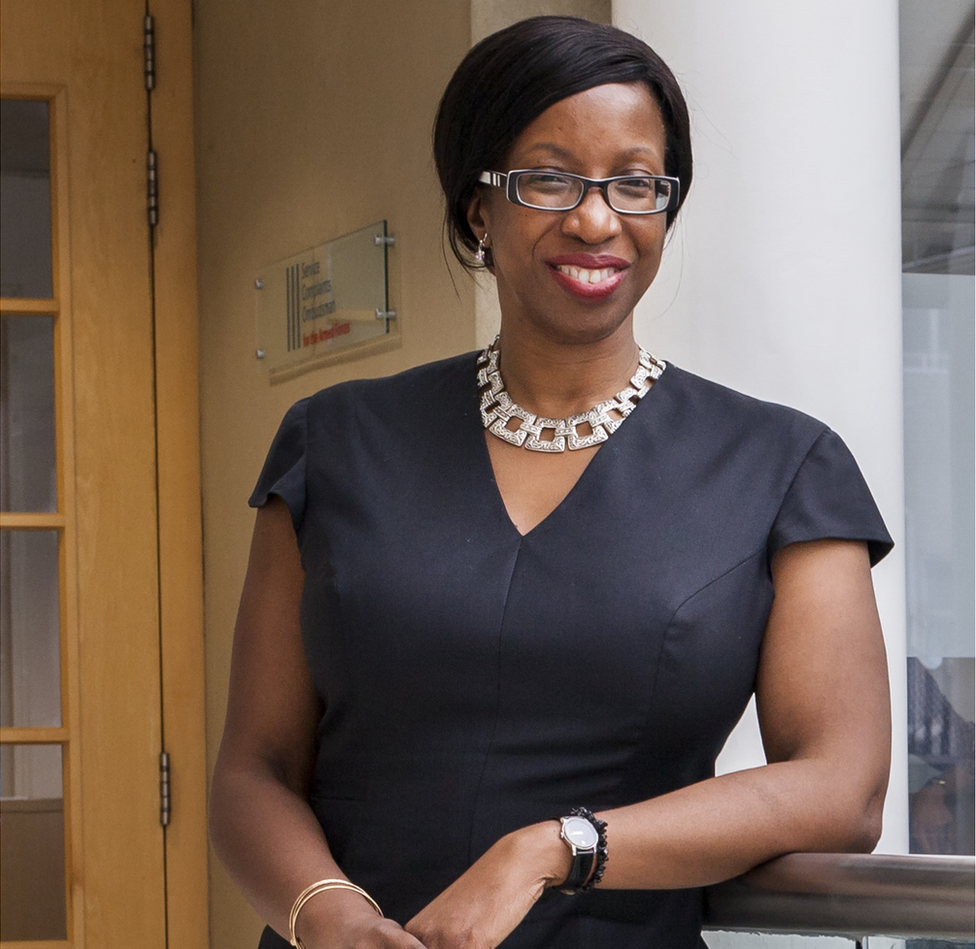
Nicola Williams said the armed forces have racism issues they must tackle
Ms Williams has repeatedly called on the MoD to commission an independent report to find out why so many people with BAME backgrounds and women are making complaints.
The MoD insists it's committed to stamping out racism.
It says it has a range of measures to ensure the issue is tackled including regular diversity and inclusion training. The Army has also set up a unit and a help-line to deal with "unacceptable behaviours".
Lt. Colonel Jonathan Buxton , who runs the unit, says the fact the Army has invested in his team of six shows "it is taking the problem seriously".
In a statement the MoD said "racism has no place in the military and anyone found to be behaving in such a way can expect to be disciplined, discharged or dismissed".
Solicitor Ahmed Al-Nahhas says he's seen no evidence that any action was taken against those responsible for bullying Mark De Kretser.
As for Mark himself, he's still trying to put his life back together.
He says the Army "broke me. I was really quite a strong character. But I'm a mouse now"
- Published3 February 2018
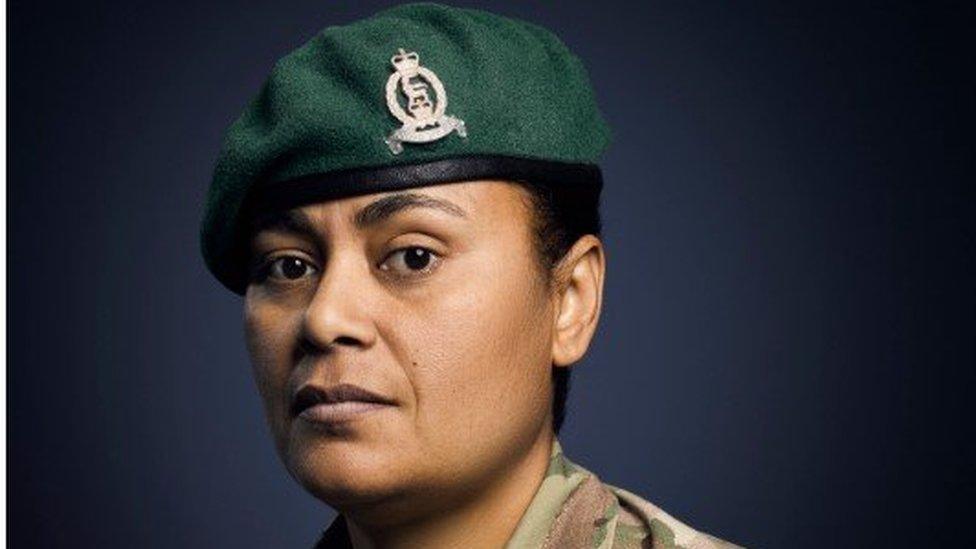
- Published16 September 2019
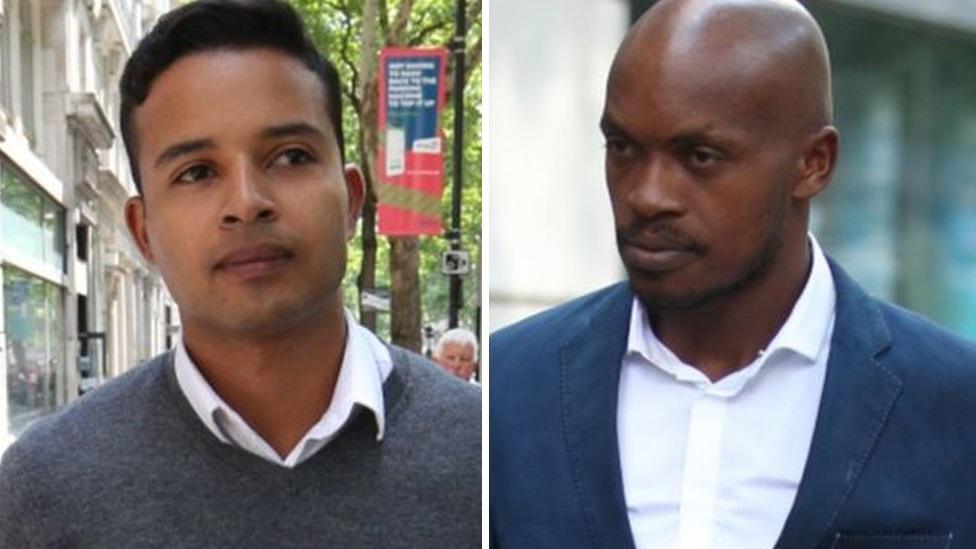
- Published7 August 2019
